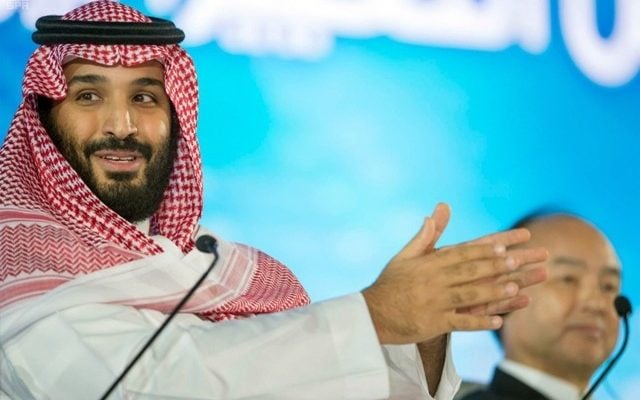Is Saudi Arabia completely changing? Its crown prince announced plans to steer away from Islamic extremism and oil.
Saudi Arabia’s Crown Prince Mohammed bin Salman has defended his bold reform plans, including the kingdom’s decision to lift the ban on women driving, saying that “we were not like this in the past.”
The prince says that “we want to go back to what we were: moderate Islam,” speaking during a rare public appearance at a major investment conference in Saudi Arabia on Tuesday.
The heir to the throne says the kingdom will work to defeat extremist ideas and ensure that young Saudis live in harmony with the rest of the world.
“We will eradicate the remnants of extremism very soon… We represent the moderate teachings and principles of Islam,” he stated.
He addressed a panel that included business titans Stephen Schwarzman of US private equity firm Blackstone and Masayoshi Son of Japan’s technology conglomerate SoftBank.
The panelists later lavished praise on the 32-year-old prince for his “passion”, “vision” and “enthusiasm” but he interjected, saying he is only “one of 20 million people. I am nothing without them.”
Saudi Arabia’s Crown Prince also announced plans for a new $500 billion city to be built in the country’s northwest that will be run entirely on alternative energy and be an innovation hub for the future.
The project, called Neom, will be built on untouched land along the country’s Red Sea coastline near Egypt and Jordan, just south of Israel. The ambitious project could lead the way in the use of drones, driverless cars and robotics.
The kingdom’s sovereign wealth fund, which the crown prince chairs, the Saudi government and global technology firms will help build the city.
Prince Mohammed announced the project Tuesday at a major investment conference in Riyadh aimed at shining a spotlight on the kingdom’s efforts to diversify its revenue streams away from dependence on oil exports.
By: AP





